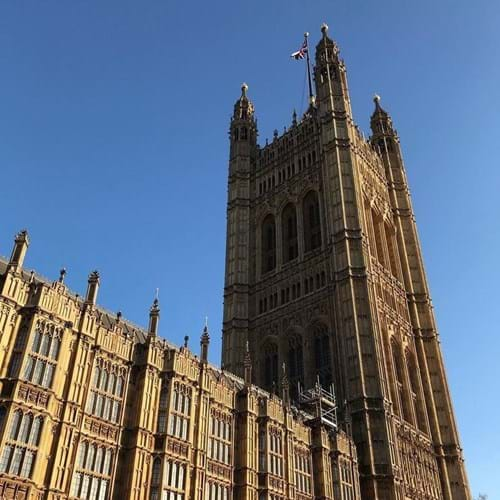
The Autumn Statement 2023 was delivered by chancellor Jeremy Hunt in parliament on November 22.
Image: Laura Chesters
Freya Simms, CEO at LAPADA said: “Our members will certainly welcome the cut in National Insurance rates for employees by 2% – but this will be of limited value as the maximum benefit is effectively capped at around £750.
“The Chancellor was slightly less generous to the self-employed, which many of our members are, with only a 1% reduction in Class 4 NI and a maximum saving of £377 a year. However, the abolition of the Class 2 NI will be welcomed as it removes an unnecessary complication for those who are self-employed.”
Simms said the other main measure, the permanent extension of the full write-off of most capital expenditure, will have little effect on LAPADA’s members, as many will already fall under the existing £1m annual Investment Allowance Limit.
Simms added: “What we did not see, and what our members wanted, was specific relief for retailers by way of rates relief or measures to reduce the 5% VAT on the imports of art and antiques.. “However, we are working with BAMF in our campaign to get ministers and civil servants to understand how important this is for the health of the art market in the UK.”
British Antique Dealers’ Association secretary general Mark Dodgson, said: “For those of our members with shops and galleries we very much welcome the extension of the retail, hospitality and leisure (RHL) relief against business rates.
“The 75% reduction in business rates has already made a significant difference to some members’ ability to remain in their galleries and shops at a time when footfall has not fully recovered post Covid-19.
“My only concern is that future governments do not create a cliff-edge effect by suddenly withdrawing the relief with effect from April 2025. We would prefer the relief for shops to continue indefinitely but should a future government decide to withdraw it then then they should do so in a gradual, staggered way, particularly as the rates multiplier is now going up.”
He added: “Whilst we welcome the RHL relief, it’s worth bearing in mind that a significant number of dealers do not have a gallery so will not benefit from this help.”
Some of the changes in the Autumn Statement 2023:
National Insurance Contributions
A National Insurance tax cut from 12% to 10% for employees from January, capped at around £750.
A tax cut and simplification for the self-employed which will abolish an entire class of National Insurance Contributions (NICS) plus the cutting of the rate of the top rate NICs from 9% to 8%.
High Street help
Business rates relief will also be extended for high street shops.
Hunt announced a business rates support package worth £4.3bn over the next five years. This includes a rollover of 75% Retail, Hospitality and Leisure relief up to £110,000 for 230,000 properties as well as a freeze to the small business multiplier until April 2025.
A business rates bill is worked out by multiplying the rateable value of a property by the annual multiplier set by the government (either the standard multiplier and the small business multiplier).
Business investing
A change to make the so-called “full expensing” permanent was alos announced. This allows businesses to offset investment in items such as new IT equipment against tax ie a full write-off of most capital expenditure. However, there is an existing £1m annual Investment Allowance Limit which means smaller companies will not benefit.
Reaction
Alongside the art and antiques sector, many other businesses wished the budget had gone further and helped more businesses and workers.
Retail trade union Usdaw said: “Usdaw had urged the government to take decisive action to support our high streets… including the introduction of an online sales tax, to level the playing field for businesses, but they haven’t done that. Extending support on business rates is welcome but doesn’t go anywhere near far enough.
“This continued sticking plaster approach isn’t good enough, we still need an industrial strategy for retail.”
Tax burden
Despite the tax cuts, the Conservative government’s tax burden on the public is still at a record high and according to forecasts from the Office for Budget Responsibility (OBR) taxes are still trending upwards, with a post-war high of 37.7% set to be reached by 2028/29 under the current government plans.
Hear the Auctumn Statement speech via gov.uk.
